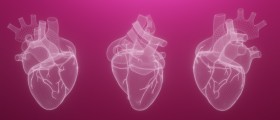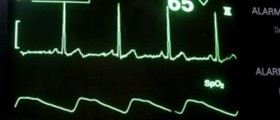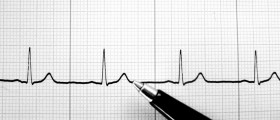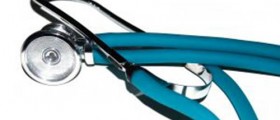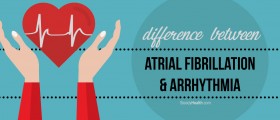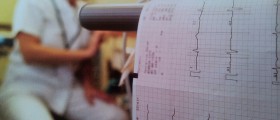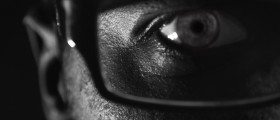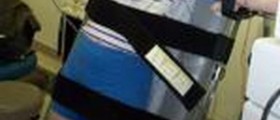Hello. I'm 24 year old young mother and I'm really worried for my little daughter. She is only seven months old and just recently her podiatrist has determined that she has some heart beat irregularity.
After EKG test, he diagnosed her with some syndrome called Wolff-Parkinson-White syndrome.
He didn’t explain me anything about this syndrome but, if I understood right, it has something to do with her electric signals on heart.
He also prescribed her some medications and told me that everything will be ok. I feel like I'm not being told quite everything about this. I also interested is this condition hereditary, because my husband has also some heart problems. Anyone has more information about this?
Loading...
Hello. I'm very sorry about your little daughter. She really didn’t deserve to be sick that young. I will tell you some crucial facts about this syndrome.
Like you already said, Wolff-Parkinson-White syndrome is a congenital heart problem that affects the heart’s electrical system. The electric impulse doesn’t follow the normal path from atria to ventricles but goes in one circuit around the heart. Sometimes, it causes no symptoms but sometimes it’s causing heart beat irregularity called supraventricular tachycardia.
For your information WPW is not usually hereditary and it is not usually passed from parents to children.
Loading...
It may be that medication wiil relieve symptoms but my understanding is they won't cure it. I don't really know about WPW in children, but i think it's possible to grow out of it.
From my experience the op wasn't too bad and I was completely cured of any symptoms. My bpm was recorded at over 220 before the op, now i never have a problem even during vigorous exercise.
hope this puts your mind at ease a bit
Loading...
I can speak to you from experience; being a member of a family where a diagnosis of WPW could have saved many males lives. Every males on my fathers side, including himself, has died before the age of 50. My Father was only 47. It cannot be proven for most, but it has been proven for a few that the diagnosis was indeed WPW. If this knowledge and know how had of been available years ago - who knows how many would still be alive. But everyone died of rapid heart rate : tachycardia.
It is mostly common in the male species and is always a defect that they are born with. It is not from an injury or something that has grown or a disease that has generated in later life. Unfortunatley this is a congenital abnormality (present at birth) involving the heart's electrical system. Most people with WPW syndrome lead normal lives. Many have no symptoms and have no episodes of tachycardia. Normally, electrical signals in the heart go through the atrioventricular (AV) node, the pathway connecting the two top chambers of the heart (atria) to the two bottom chambers (ventricles).
In people with Wolff-Parkinson-White syndrome, there is an extra, or accessory, AV pathway. This leads to "re-entry supraventricular tachycardia," a rapid heart rate initiated above the ventricles.
The location of the extra electrical pathway in Wolff-Parkinson-White can often be precisely identified. Wolff-Parkinson-White is one of the most common causes of fast heart rate disorders (tachyarrhymthmias) in infants and children.
In some people, WPW syndrome can cause rapid heartbeats (paroxysmal supraventricular tachycardia), with heart rates rising up to 240 beats per minute (The normal rate is 60 to 80 beats per minute). Other symptoms include palpitations, shortness of breath, fainting and possibly angina (chest pain). While the condition is present at birth, these type of symptoms are more likely to appear in adults. WPW is usually diagnosed in adolescence or early adulthood.
Researching WPW and being in contact with the founders of the disease, has brought alot of evidence that it indeed IS HEREDITARY !!!
Where I live in Toronto, Ontario CANADA, there is a research Hospital that deals with such disorders as WPW. My youngest son was diagnosed 6 yrs ago (@ 25)when his heart just about blew out of his chest while lifting weights. Gasping for breath, holding his chest he passed out. His heart rate was way too high and he was rushed to emerg. You could literally see his his chest jumping up and down over his heart area. His heart rate taken by the EMT was over 300 b.p.m ~ he is lucky to be alive.
He has had 2 abilations and still suffers from WPW. This extra pathway is extremely hard to find in some patients. It is common for Surgeons not to be able to find this area during the surgery or abilation. It was explained to me by a Cardialogist like this ..it is as if it pulls back inside and becomes unnoticeable or hidden.
Blood should pump into the heart, be refreshed and re-oxygenated then pumped back out into the body. In WPW, this extra pathway take the blood into it, forcing the blood to basically return for re-oxygenation. So the blood 'volleys' back and forth not leaving the heart. This causing the heart rate to increase to try and perform its job and it beats faster and faster.
> WPW as a whole is still being studied and experimented with. So keep yourself up to date with your Cardiologist OR/ even better, use the WPW home website.
>> I hope this help, please remember, WPW can be cured and it is operable. BEST WISHES AND GOOD LUCK
Loading...
Loading...
I have been recently diagnosed with WPW syndrome and would love to access a site like that, but I can't find this WPW website anywhere.
Loading...
Loading...
Hello, I can tell you from someone who was diognose with WPW when i was 12 that your doctor was correct in telling you everything is OK. I was not easily contoled with medication and was the second person to have surgery in the US. I owe my life to the Cleveland Clinic. Since the surgery i have gone on for 20 years in the military and have had no complications with any form of physical exercise. I now have two kids and am wondering if there is any chance that i may have passed it on to them. they have started playing sports and i am just waiting for one of them to tell me they feel funny that there heart is beating to fast. should i be worried?
Loading...
Loading...
Loading...
Loading...
Hi, i'm so sorry about your daughter. I went through that with my son 14 years ago. He was diagnosed at six weeks. He actually out grew it at 15 months old and didn't need surgery. He's a strong, beautiful child and i'm sure your daughter will be fine. He was however on meds and we often had a hard time controlling his other condition which was a rapid heart rate. The best thing i can tell you is to watch your child, you will know best when something is wrong. Good luck to you!
Loading...
My son was diagnosed at 2 and a half. He has had no symptoms as of yet. I understand your worry. My son now is almost 5 and he is in kindergarten and I worry everyday about him going to school. I was told by his dr. And a good friend that is a P.A. That symptoms of WPW usually start around 8. My son is very active and his cardiologist said to let him be a little boy.they say there is still a chance he can grow out of it. As for hereditary I'm sorry I don't know. I am still learning about all of this myself. I wish you and your daughter the best and hopefully she will grow out of it!
